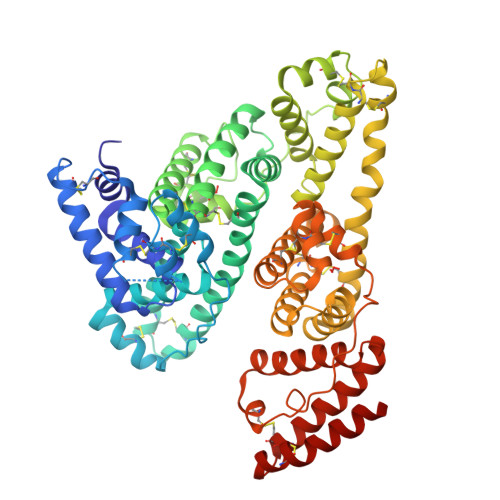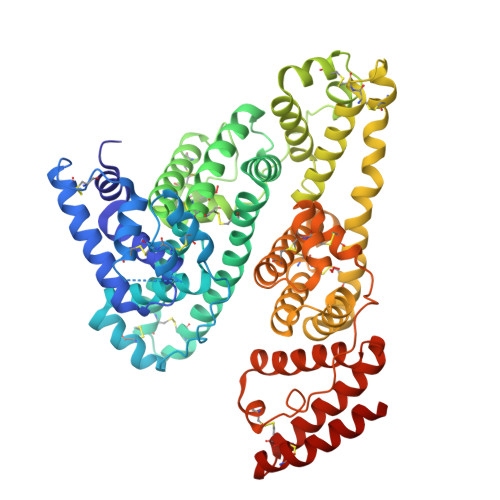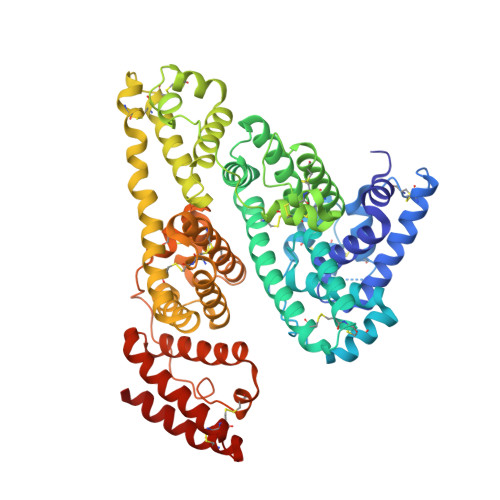Circulatory zinc transport is controlled by distinct interdomain sites on mammalian albumins.
Handing, K.B., Shabalin, I.G., Kassaar, O., Khazaipoul, S., Blindauer, C.A., Stewart, A.J., Chruszcz, M., Minor, W.(2016) Chem Sci 7: 6635-6648
- PubMed: 28567254
- DOI: https://doi.org/10.1039/c6sc02267g
- Primary Citation of Related Structures:
5IIH, 5IIU, 5IIX, 5IJ5, 5IJE, 5IJF - PubMed Abstract:
Zinc is an essential nutrient in the body; it is required for the catalytic activity of many hundreds of human enzymes and virtually all biological processes, therefore its homeostasis and trafficking is of crucial interest. Serum albumin is the major carrier of Zn 2+ in the blood and is required for its systemic distribution. Here we present the first crystal structures of human serum albumin (HSA) and equine serum albumin (ESA) in complex with Zn 2+ . The structures allow unambiguous identification of the major zinc binding site on these two albumins, as well as several further, weaker zinc binding sites. The major site in both HSA and ESA has tetrahedral geometry and comprises three protein ligands from the sidechains of His67, His247 and Asp249 and a water molecule. Isothermal titration calorimetric studies of a HSA H67A mutant confirm this to be the highest affinity Zn 2+ site. Furthermore, analysis of Zn 2+ binding to HSA and ESA proved the presence of secondary sites with 20-50-fold weaker affinities, which may become of importance under particular physiological conditions. Both calorimetry and crystallography suggest that ESA possesses an additional site compared to HSA, involving Glu153, His157 and His288. The His157 residue is replaced by Phe in HSA, incapable of metal coordination. Collectively, these findings are critical to our understanding of the role serum albumin plays in circulatory Zn 2+ handling and cellular delivery.
Organizational Affiliation:
Department of Molecular Physiology and Biological Physics , University of Virginia School of Medicine , PO Box 800736 , Charlottesville , VA 22908-0736 , USA . Email: wladek@iwonka.med.virginia.edu ; Tel: +1-434-243-6865.



















